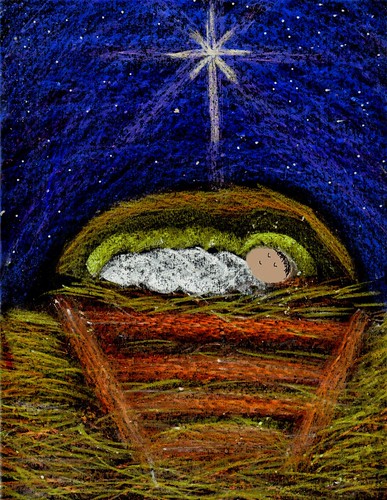Now that our traveling members are back home, I have a stack of worship bulletins to look over. In my parish the regular Sunday folk are likely to be on the road for the high and holy days of the church and secular calendar so the congregation looks somewhat unfamiliar to me on Christmas. When they return from their journeys they bring me the trophies of their time spent in other parishes. It is a mixed bag.
One bulletin failed to note anywhere the name of the congregation or its location. Were it not for the fact that theses folks had told me where they had been, I would never know from the congregation's own bulletin or service folder.
One failed to mention the name of the Pastor nor to note the location of the parish but it did give a name. It was very nicely constructed and was printed in full color (some congregation is spending too much money on what is essentially a throw away piece -- but that is only my opinion).
A couple offer a choice for those who either "cannot take" or "cannot tolerate" alcohol -- a communion option about which I have serious concerns. In one the location of the "grape juice" (note that it is not called the blood of Christ) is noted as the center row of cups in the tray of individual glasses. In another the choice was noted by the fact that the wine used was red but the choice for the communicant offered "white grape juice" -- again in the center of the trays of individual cups. Ah yes, again the note said it was white grape juice and not the blood of Christ. Hmmmmm. A third said that while wine was the preferred element in Holy Communion, non-alcoholic grape juice was available upon request (before or during the distribution was not specified).
I have read an array of vision statements, mission statements, and core values statements. Strangely enough, hardly any of these bulletins or service folders included the denominational affiliation of the congregation but most of them had some form of "statement" to tell you who they were. I am not at all sure how helpful these are to the visitor or member but the various denominational ties of the bulletins surveyed seemed to indicate that all Lutheran jurisdictions share and equal predilection for rather trite, obvious, and banal statements of mission, values, or vision. I am glad we are ecumenically equal offenders here. A great deal of talk about caring and supportive places, peoples, parishes, and the like. One said that their purpose was to help folks "discover what is important in life..." -- how helpful!
There were many who seemed to conclude the that the point of the Reformation was to restore to prominence the "priesthood of all believers." What is at best a peripheral point in the Lutheran Confessions has morphed into one of the major tenets of the faith and it shows up on a ton of Lutheran service folders and parish bulletins. Several like to include in the list the staff of the parish the whole congregation as "the ministers of Christ." All well and good, I suppose, but it would seem deeds would be better than words in this declaration.
One insisted that it was "A Church Committed to Christ and the Priesthood of All Believers." Hmmm... That was the only qualifier of its identity. Christ and the Priesthood of All Believers. As important as this is (and I would much prefer we spoke in terms of baptismal vocation), the elevation of the priesthood of all believers to the most important dogma of all our Confessions is troubling on several levels. We seem to be fixated upon the royal priesthood in a way that is somewhat unhealthy. In other words, instead of addressing the baptismal vocation that is our calling from the waters of our new birth, we attempt to clericalize (Francis' term) the laity and speak as if the Office of Pastor were optional and the priesthood of all believers were essential. This is not Lutheran language. Nor is it Lutheran to make it merely a matter of a functional and orderly need to assign to the Pastor the duties, rights, and privileges that belong to the individual Christians (where did we as Lutherans ever speak of the royal priesthood as an association of individual and autonomous priests?).
All of this seems to be designed to make lay folk more comfortable in the pew against a seemingly hierarchical notion of "ministry" while at the same time giving the false impression that the royal priesthood is framed largely in terms of pastoral responsibility instead of worship, witness, works of mercy and service in Christ's name. Strange that I have never seen a Sunday bulletin that declares "A Church Committed to Christ and the Peculiar People" -- perhaps a more apt and true description of any assembly of God's people!
Anyway... those are just a few observations from the stack of bulletins (or service folders, if you prefer) that I have made my way through in the occasional quiet moments sitting at my desk (like those spent waiting on a phone que or on hold)... Cannot wait until Easter!?!

"(Non-alcoholic wine is offered in the blue section of the
ReplyDeleteCommunion trays for those with special needs.)
Gluten-free Communion wafers are also available. Please ask an
usher for the Communion station offering this option. "
Do you have a problem with this statement?